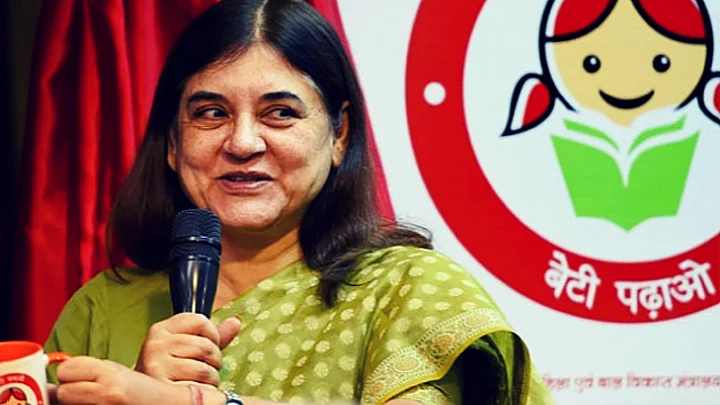“Something must be done”, says the Minister. “Something must be seen to be done”, responds the Secretary.
The 1980s British satire Yes Minister is largely about political inaction, often masked by ceremonious shrouds. This idea, which runs as a strong undercurrent in the show seems to sum up Maneka Gandhi’s motives when she suggested sex determination be made mandatory to fight female foeticide. “Make it compulsory”, she said “to tell a pregnant woman if it is a boy or a girl and get her registered. Then you will be able to monitor it, whether she is born or not.”
A radical suggestion, it needed a lot more thought before being floated.
Conception, Pregnancy and Birth – a State Subject?
The Pre-Conception and Pre-Natal Diagnostic Techniques Act, 1994 prohibits, among other things, the determination of sex leading to female foeticide. By overturning this law, Maneka Gandhi seems to be suggesting that the key to fighting female foeticide may lie in tracking the pregnancy of each and every woman expecting a girl.
To put things in perspective, 51 babies are born every 60 seconds in India. To track each and every one of these pregnancies is simply impossible.
By making her pregnancy a subject of state monitoring and investigation, it would infringe upon a woman’s reproductive rights.
Thirdly, Maneka Gandhi’s proposal, if allowed to be implemented, will be in direct violation of our relatively progressive abortion laws. Currently, abortion in India is legal up to twenty weeks of pregnancy and a debate is on to increase it to twenty-four weeks for special categories.
Also, the law prohibits woman undergoing an abortion to be identified. How will authorities track a pregnancy and monitor its termination without knowing the woman’s identity and infringing upon her privacy, or regressing an existing law?
Not surprisingly, women’s and health rights activists have strongly condemned Maneka Gandhi’s brainwave to tackle female foeticide.
Sex determination is not the point. Abortion based on the sex of the foetus is what we call female foeticide. When you start monitoring women’s bodies and telling women what to do, you are perpetuating the very mindset that we need to remove. The same mindset that says girls are a social and financial burden. Maneka Gandhi is barking up the wrong tree in this technological age where you can dictate the sex of a child even before conception.Jashodhara Dasgupta, Convenor, National Alliance on Maternal Mortality and Human Rights (NAMMHR).
Miscarriage vs Abortion
How does one distinguish between a natural miscarriage and a drug-induced abortion? “It is medically impossible to determine”, says Dr Puneet Bedi, senior consultant at Apollo Hospital and a health activist.
Far from acting as a deterrent, the fact that it’s impossible to determine a miscarriage from an abortion may either victimise innocent women or allow murderers to get away.
Further, even if Maneka Gandhi’s proposal specifies punitive action, the allegations will be next to impossible to prove in court.
Further Victimising the Victim
Further, if Maneka Gandhi’s proposal is realised, it would shift the onus from unethical medical practitioners to the pregnant woman, who is generally viewed as the victim of female foeticide under the current law.
According to the UNICEF, sex determination and selective female foeticide by unethical medical practitioners has grown into an estimated Rs 1,000 crore industry.
Can we afford to let the pressure go off this burgeoning illegal network that murders baby girls before they’re born?
(At The Quint, we question everything. Play an active role in shaping our journalism by becoming a member today.)
